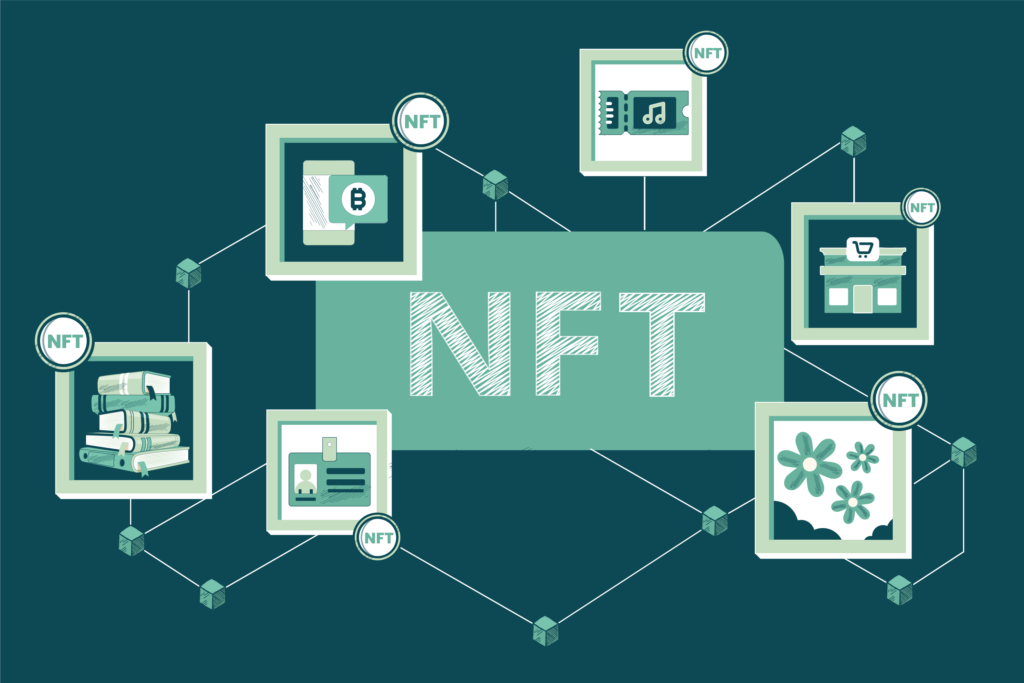We know there are many companies that have already launched non-fungible projects over the past year. It is warmly received by video gamers. Gamers are more interested in investing in NFT games. These games are a new development in blockchain technology. But will NFT projects generate effective results for gaming companies? Is NFT seriously worth it for gamers?
Can NFTs Be Used For Gaming?
Yes, NFTs are used for gaming, which makes them perfect for this genre of software.
- They are incredibly adaptable and may be tailored to fit the particular requirements of every game. As a result, developers are free to build games that are distinctive and fun to play without worrying about conventional limitations like multiplayer compatibility or graphic specifications.
- Users can easily monetize with NFTs. While maintaining ownership rights, developers can create additional revenue sources by issuing secondary tokens linked to in-game assets.
- NFT gamers can trade each other’s NFTs without worrying about trust concerns or security flaws associated with online exchanges of traditional currencies.
- NFTs have the power to completely change the way we think about video games by enabling endless customization and expansion!
How Do NFTs Work?
Similar to cryptocurrencies, NFTs are created on a blockchain, a decentralized ledger. Yet they are not equivalent to one another, like cryptocurrencies. Two bitcoins, for example, can be swapped for one another immediately because they have the same intrinsic value.NFTs include data that is tied to a digital asset like a photograph, movie, or song, so they can’t be traded that way. NFTs are essentially digital logs that provide someone access to the underlying digital asset. Digital artists can employ algorithms to randomly make one-of-a-kind digital artworks that have a variety of qualities, or they can mint their works as NFT tokens, which stand in for the “original” as opposed to “copies” that can be downloaded online. NFTs are merely connections to assets that have been digitally replicated, according to critics, making them intrinsically worthless. However, NFT proponents assert that the value of those links comes from their scarcity, much like the value of actual artifacts like paintings, sports cards, coins, and comic books.
The Reason Behind Selling NFTs!
It is understandable why publishers of video games would want to market NFTs. Gamers have already been conditioned to accept the idea of digital ownership thanks to sales of in-game objects, which are used to monetize the majority of contemporary games. In addition, over the past ten years, the cost of producing “triple-A” video games has increased. With an average selling price of $60, these escalating prices have made it challenging for video game publishers to recover their development costs. To maximize revenue per player, they are being forced to release additional downloaded content (DLC) packs and paid in-game content. Consequently, it makes strategic sense for game firms to produce NFTs as unique collectibles that can subsequently be sold on external marketplaces.
What Does NFT Mean In Gaming?
The gamers themselves are the best experts in the gaming industry. It is therefore only appropriate to make reference to them in order to comprehend what NFTs signify for the industry at large. Overall, they believe that NFTs are positioned to become a significant participant in the gaming industry and may have important implications for both game producers and players. They’ll help with monetization techniques in the future because they’re also utilized to store in-game objects. NFTs are poised to completely alter how games are played thanks to their adaptability and customization.
Changes In The Future Gaming Industry!
As they enable players to engage with the game world in novel and exciting ways, non-fungible tokens (NFTs) appear to be the game-changer that many have been waiting for. They not only offer a more engaging gaming experience, but they also give developers a way to make games that transcend conventional limitations. For example, by permitting participants of various ages or places to cooperate while playing. Moreover, tokenization can aid in the efficient and equitable monetization of games, allowing developers to profit not only from game sales but also from associated ventures like the trading of in-game objects and ad placements. NFTs have massive potential implications, which include the following:
- New game mechanisms that are based on how players interact with in-game objects
- Improved ways to commercialize games by enabling users to purchase and trade goods with unique qualities or capabilities
- New opportunities for players to interact with one another through resource sharing and trading
It seems obvious that the future of gaming will be greatly impacted by blockchain technology and NFTs.
Is It Profitable?
On whether NFT games are currently profitable or not, there is no clear agreement. However, many gamers find them to be enticing and the different methods by which they can make money. It will take time for developers to figure out how to profit from NFT gaming sustainably.
Conclusion
NFT games have many pros as well as a few cons. But the future of gaming is brighter. We anticipate that as other games use this ground-breaking technology, consumers will have access to even more amazing prospects. We think that NFTs will be particularly crucial for boosting player interaction and trust in online games. Giving users a sense of ownership over their game content will also give creators other options to commercialize their products.






